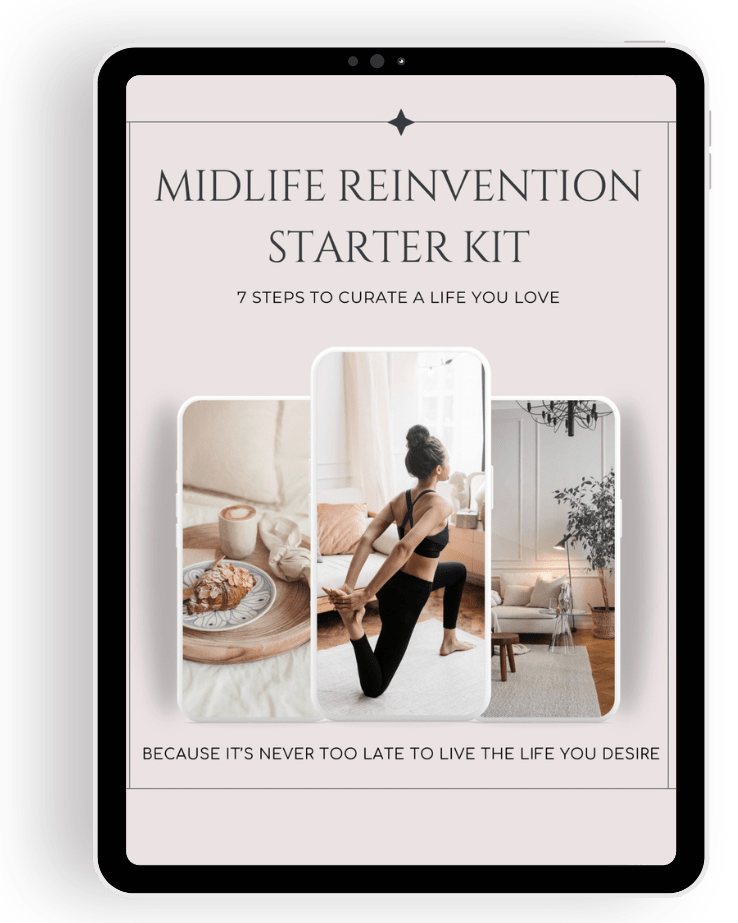After nearly a year and a half of living within a 5-kilometre radius of my home, I’ve had plenty of time to reflect and review my financial situation. If a global pandemic and reduced income don’t make you re-evaluate your finances, I don’t know what will.

Over the past 12 months, I’ve realised how unnecessary certain purchases were and how to live frugally when you don’t know when your next invoice is going to be paid. In this post, I’ve shared some of the best money-saving tips + budgeting tricks that are helping me save up for a deposit.
1. Delete all temptations
It’s Friday night, the sink is full of dishes and you don’t have the mental capacity to whip up a home-cooked meal. So you reach for your phone and in just a few taps, you’ve got a curry on the way – it’s conveniently TOO easy! We all know takeaway food can be very expensive. Go ahead and do yourself a favour and delete any food delivery apps from your mobile as this will help create a barrier between you and Deliveroo. As a backup, make sure to keep your freezer filled with low-cost “fakeaway” options at the ready for the evenings when you’re short on time or lacking motivation.

2. Set up automatic saving deposits
Make your money work for you by setting up automatic standing orders/direct debits into your savings and/or investment accounts so you can easily save without having to think about it. Don’t wait till the end of the month and save what’s left, because chances are you’ll have spent it already if it’s in your checking account. Try to think of it as a non-negotiable “bill”. That way every month when you get paid, a % will be automatically transferred into another account.
If you’re self-employed like me, you never know when your next invoice is going to be paid. So what I like to do is the minute a job gets paid, I transfer 20% into a separate account for tax and another 20% of it into my savings account.
3. Sell what no longer brings you joy
During the lockdown, it became apparent to me that I only seem to wear three outfits on rotation, which made me realise how unnecessary my overflowing wardrobe really is. Spend a weekend doing a deep clean of your house, from top to bottom, and sort everything you own into three separate piles:
- Things you use regularly or that bring you joy.
- Things that you no longer use/wear or bring you joy.
- Things that are broken.
Tackle pile 3 first and see what can be repaired or recycled. If it’s beyond repair, be ruthless and bin it!

4. Budget using the jam-jar method
It’s an old school method, but it works! Your grandma may have told you stories of how she managed her household finances by keeping cash in various empty jam jars or envelopes for different expenses. However, in 2021, there is a much easier way to do this saving trick from the palm of your hand: introducing HyperJar. HyperJar is a free money-saving app where you can divide your money into separate saving jars/pots.
I’ve got jars set up for holidays, Christmas & birthday presents, date nights and bottomless brunch outings — so that way I can see how much I’ve saved for each category. This method means I can easily avoid having to dip into my separate savings/house deposit account when an unexpected cost comes up, as I have already budgeted for it.
5. Set up Auto Round-Ups
Auto round-ups is one of the ways I’ve been able to easily save money without even thinking about it. Most, if not all, banking apps offer this feature where anytime you make a purchase, the bank will round the figure to the nearest pound and save the difference. For example, if you spend £25.55 on petrol, the bank rounds up and transfers .45 into your savings. You could even do it manually, say you’ve just bought a book for £15, round it up and make a quick £5 transfer into your savings account.
6. Diversify your income streams
Start a side hustle! Look into drop shipping, print on demand or you could even try your hand and get crafty with candle making or resin art. If you can sell a digital product, even better, as there are no overhead costs related to shipping/packaging/stock. Become a virtual assistant, make money from blog and earn through affiliate links, complete online surveys for a fee, or do translation work — the possibilities are literally endless.
6. Track & review your spending
One of the easiest ways to overspend is to turn a blind eye to your shopping habits. I’ll put my hand up and openly admit that I was guilty of this for many years. If I can’t see it, it doesn’t exist, right? Wrong! By making sure you know exactly where every single pound is going, you’ll be able to determine where you’re wasting the most money. The best way to approach this is to review your bank statements with a fine-tooth comb and look out for any reoccurring subscriptions you may have forgotten to cancel. Most banking apps will also lump your transactions into categories so you can easily review where you’re spending the most money. For years I naively assumed I was spending a ton of cash on clothes & makeup when on closer inspection it turns out I was throwing the most money at alcohol and takeaways, which was an eye-opening reality check indeed.
7. Meal prep & buy groceries online
If you’ve ever taken the time to review your spending habits and I mean really review them, I’m sure you have found that most of your money goes to food. It’s ridiculous, isn’t it? Those little snack runs to Tesco sure do add up over time. By cooking at home and preparing meals ahead of time, you’re less likely to give in to temptation and avoid that £10 lunch deal on your work break.
And don’t get me wrong, planning for meals can be exhausting so consider using a company that can do the decision work for you. There are a plethora of meal delivery services on hand these days so you don’t have to lift a finger other than to click add to cart.
Do your grocery shopping online. Most supermarkets offer a free click & collect which means you’re less likely to overspend when you can mindfully select all your required ingredients rather than buying food you don’t actually need because you’ve walked aimlessly through the aisles. When you shop online you have more time to make budget-friendly decisions and you can do it from the comfort of your own bed.

8. Unsubscribe & Unfollow
Go through your bank statements and carefully review your monthly subscriptions. See if you can split the costs of Netflix with other family members or friends. I save half the cost of my Adobe Creative Cloud subscription by going halves with one of my friends who’s also a graphic designer (you can have two logins per account!).
Make sure to unsubscribe from any newsletters and mailing lists from online stores. If your inbox is constantly flooded with sale updates, it’s no surprise you’re mindlessly spending more than you intended. Unfollow shops on Instagram and Facebook too. You could go one step further and unfollow a few influencers who are most likely influencing you to overspend at Zara.
9. Try the no-spend challenge
It sounds extreme, however, the no-spend challenge is one of the most effective money-saving habits you could adopt. How does it work? Challenge yourself to go a period of time (say a day, weekend, week or month) without spending any money outside of the essentials like rent, bills & groceries. It’s easier to stick to this restriction knowing it’s only for a limited amount of time. I choose to have a no-spend weekend every month, which means no cocktails, no brunches, and unnecessary purchases. Instead, I use these weekends to catch up on chores, life admin or simply have a duvet day with my favourite Netflix series.

10. Create a wishlist
This little trick has saved me thousands on impulse purchases. Every time I get the urge to buy something new, be it a Diptyque candle or a new bikini (in the middle of winter, really?), I write the item down in a ‘wishlist’ aka the Notes app on my iPhone. Then, at the end of each month, I review this wishlist and allow myself to pick one item to buy. 9 times out of 10 when I come to review the wishlist, I realise I no longer want or need any of the items.

11. Say no to fast fashion & fast trends
Buying sustainable clothing is a habit only the privileged and slim-bodied can easily access, so while some of us might only be able to afford fast fashion, I’m sure we can all be a bit more mindful about our wardrobe purchases and save some money in the process. My advice is to buy less into trends: ask yourself, is this neon green snakeskin printed top going to be fashionable in 5 years? Personally, my wardrobe is filled with neutrals and timeless prints like stripes, polka dots, check & houndstooth that have stood the tests of time. By adopting a capsule wardrobe and buying second-hand/vintage where possible, you’ll save hundreds.

Feel free to sign up to my Friday Morning Love Note HERE! This isn’t just a newsletter - it’s your invitation to pause, reflect, and realign with you. Every week, we’ll journey together to uncover the small, meaningful shifts that will help you design a life that feels uniquely and beautifully yours. Each week, I’ll deliver fresh intentions, uplifting tips, and simple shifts to inspire purposeful, creative living.





[…] RELATED: Some of My Favourite Money Saving Tips […]
[…] RELATED: Some of My Favourite Money Saving Tips […]
[…] READ MORE: Some of my Favourite Money Saving Tips […]
[…] READ MORE: Some of my Favourite Money Saving Tips […]
[…] Some of my Favourite Money Saving Tips RELATED: Things I Stopped Buying (to Save Money & Stop […]
[…] Some of my Favourite Money Saving Tips RELATED: Things I Stopped Buying (to Save Money & Stop […]
[…] RELATED: Some of my Favourite Money Saving Tips […]